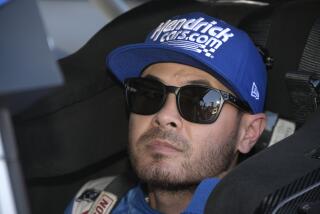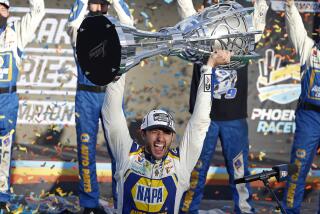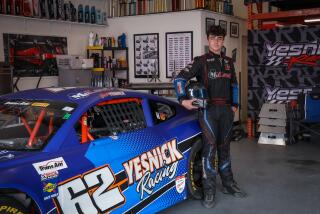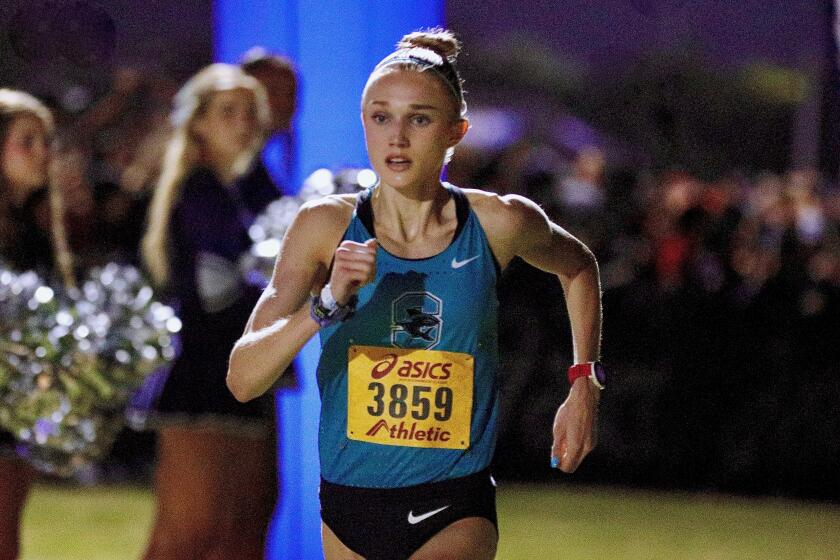NASCAR’S Brad Keselowski is a motormouth with something to say
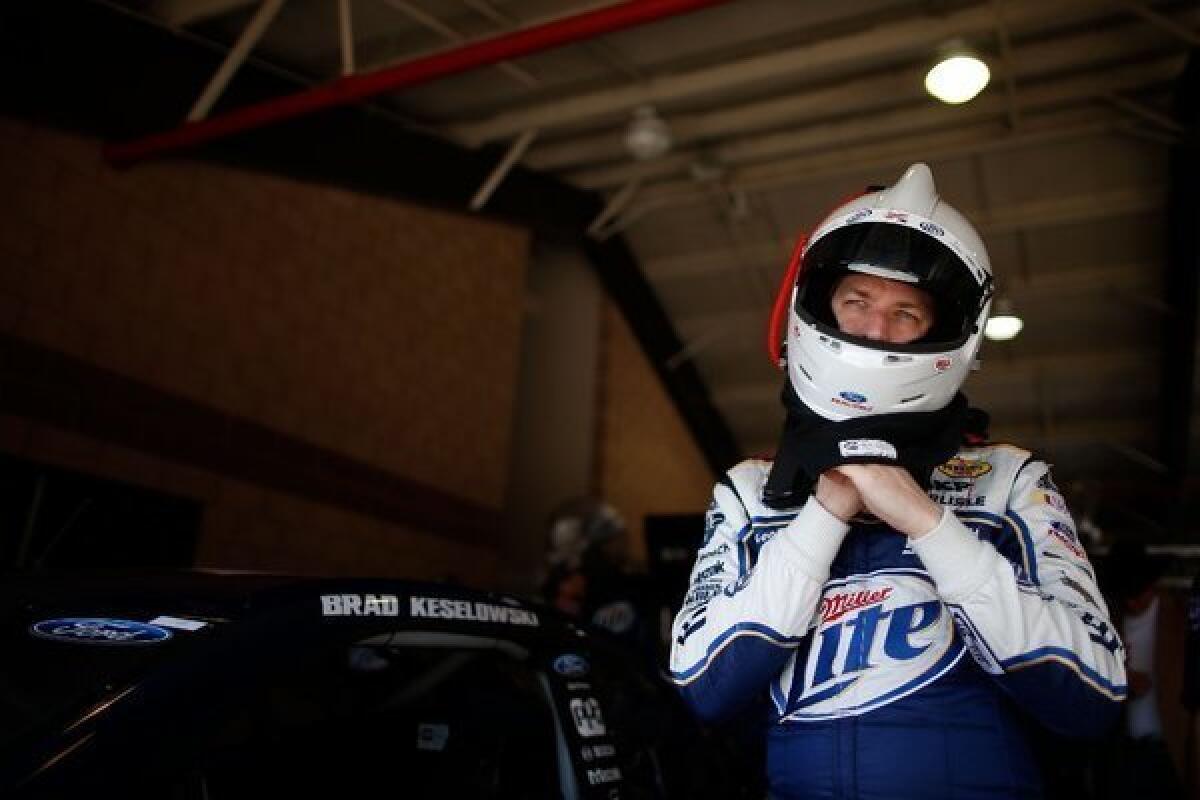
It took about 10 minutes of listening to Brad Keselowski to ponder whether NASCAR really appreciates what it has.
First, he can drive. He is no big mouth with nothing to back it up. He is the defending Sprint Cup champion and will try to build on his points lead in Sunday’s Auto Club 400 in Fontana.
But, wow, can he talk. The phrases turn faster than the Miller Lite Ford he drives. And there is substance. This is not Floyd Mayweather Jr. spewing macho claptrap for the sole benefit of Floyd Mayweather Jr.
The world of big-time stock-car racing certainly knows this, but to those of us who wouldn’t know a lug nut from a hickory nut, it is fascinating, even startling. In my world of jocks spewing platitudes and pulling muscles bending over backward to avoid saying anything controversial, interesting or germane, he is a breath of fresh air.
Keselowski’s body is 29. His mental and verbal skills are part Plato and part Leno.
You be the judge.
On the subject of drivers wrecking others in payback: “Too many guys feel they have to retaliate or they aren’t real men.... Intentional wrecking hurts the credibility of the sport. We look like pro wrestling.”
On his philosophy of competing in NASCAR: “We walk a fine line between being chess players and daredevils. Some weeks, there are more chess players, some weeks more daredevils. We can’t just have wreck-fests.”
More on NASCAR: “Hard racing, side by side, produces excitement and wrecks. If you fly off the handle, retaliate for the wrecks, you destroy the credibility of the hard racing.”
On why he ended up carrying a cellphone in his car, which he so famously used to text and tweet while drivers stood around on the track during the long delay in last year’s Daytona 500, bringing frowns from NASCAR but helping his Twitter following grow to nearly 400,000: “My first race here in California, back six or seven years ago, I was driving for Dale [Earnhardt] Jr. and got into a bad wreck. They airlifted me to Loma Linda, I’m in the helicopter, my mom was back home in Michigan and I wanted to call her and tell her I was OK. But I couldn’t. They checked me out, said I was OK, said I could go, and there I was, no phone, no clothes, nothing. I felt like Jason Bourne.”
On attempts to expand his social media exposure: “The best moments are the ones that are just off the wall. We planned something at Daytona, for fans to get pictures of themselves with our car. The response has been lousy. You put a bunch of marketing people in a room and it never works.”
On attending Wednesday night’s Clippers romp over the 76ers: “I’m not sure what professional team Philadelphia sent.”
On his outspoken nature (he stunned reporters after a race last November in Phoenix with an obscenity-laced tirade on the behavior of fellow drivers): “People tell me I should tone it down. I disagree. It’s the role of the drivers to carry the right message forward. My voice is just louder now because I won the title.”
On whether NASCAR has called him on the carpet: “We’ve talked.”
On whether the message was articulated: “Articulation is a two-way street. One side says something and the other understands. We met. Not sure we had articulation.”
On the stories that say he and fellow driver Carl Edwards are now OK with each other despite several high-profile collisions on and off the track: “I guess that’s right. Would I take him out to dinner? No.”
On what it is like driving 200 mph: “I wish I had a beautiful, poetic way to answer that, to describe how it feels. When I’m going that fast, I don’t know I’m going that fast. And if I’m going that fast, I shouldn’t be focused on going that fast. It’s like asking LeBron James what it feels like to be a 7-footer in the air.”
On his upbringing in a racing family in Michigan: “My parents didn’t let me drive anything until I was 13, 14. I was angry. But they knew. You see these 5-year-olds, playing soccer and Little League, with mom and dad yelling at them. By the time they are 12, they hate the sport. I’m never gonna burn out, and I thank my parents.”
On how much side-by-side racing to expect Sunday on Fontana’s wide track: “If they are five wide in front of me, then there will be six.”
More to Read
Go beyond the scoreboard
Get the latest on L.A.'s teams in the daily Sports Report newsletter.
You may occasionally receive promotional content from the Los Angeles Times.
